In the 1840s, at least six newspapers were published in Pittsburgh, including the Pittsburgh Catholic, the Daily Gazette, the Daily Morning Post, the Mystery, the Spirit of the Age and the Commercial Journal. But, only one editor was brave enough to not only publish the work of a female journalist, but to support her when she became the first woman in the United States to start her own newspaper.1 Robert M. Riddle, editor of the Commercial Journal, and later mayor of Pittsburgh, deserves to be better known.
The year was 1847. The abolitionist newspaper The Albatross had just ceased publishing, and the Liberty Party (a forerunner of today’s Republican Party) was without an advocating newspaper. Jane Grey Swisshelm marched into Robert Riddle’s office one day in the autumn of 1847 and announced that she intended to start her own abolitionist paper and she intended that Riddle should print it.
The Pittsburgh Saturday Visiter
At the time when she marched into Riddle’s office, Swisshelm had been writing for the Spirit of the Age and its successor the Commercial Journal for about three years. So, she had newspaper experience. But, even then, before competition from television and the internet, newspaper publishing was often unprofitable. The Albatross and the Mystery had folded in the past two years. It was far from obvious that Pittsburgh needed another newspaper. Riddle initially tried to talk Swisshelm out of her scheme. In her 1880 memoir, she quotes his exact words: “Are you insane?” He begged her to think it over, consult her husband and her friends. He reminded her that she would be a woman working in a newsroom completely dominated by men, which would seem scandalous to many.
As in so many turning points in her life, Jane Swisshelm was unpersuadable. She wore down her husband’s objections, she wore down Riddle’s objections, and she invested most of her inheritance in the newspaper she named the Pittsburgh Saturday Visiter. (Yes, that was how she spelled ‘visitor’; she insisted that it was correct, and people soon grew tired of trying to argue Jane out of anything).
Pioneers

Swisshelm published the first issue of the Visiter on December 20, 1847, and the newspaper had 6000 subscribers by the end of 1848.
Jane admitted that interest in the new paper was partly driven by the sensation of a lady publisher. As Riddle had predicted, the public was both intrigued and scandalized. Jane was small, pretty, and looked younger than her 32 years. No photographs of Robert Riddle exist, but he was only 35 when he started printing the Visiter, and Jane’s own account describes him as “one of the most elegant and polished gentlemen in the city, with fine physique and fascinating manners.” Jane’s biographer, Sylvia Hoffert, points out that “Neither Jane nor Riddle had ever worked as an equal in an office with a member of the opposite sex. And they knew only one other man and woman in Pittsburgh who had done so.” They had to make it up as they went along.
To demonstrate that their relationship was strictly business, Riddle had the shutters removed from the windows of the Commercial Journal offices. So, the curious public had a direct view into everything that went on in the newsroom. He and Jane took care never to be seen alone together. If Riddle escorted Jane anywhere, his wife was also present. Jane went out of her way to look unattractive and unfeminine when she was working in the newspaper office. She was so successful that Riddle at one point asked her why she was always covering her hair with “hideous caps.”
Business Partnership: Robert M. Riddle & Jane Grey Swisshelm
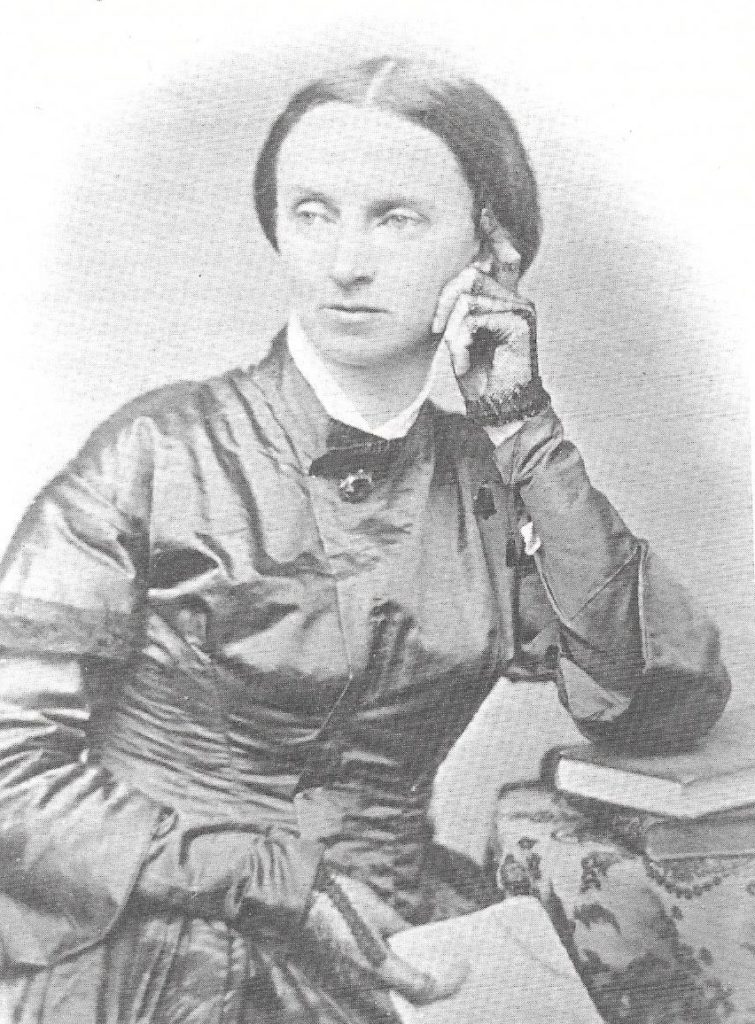
Their partnership worked well. Published weekly, the Visiter carried political news and commentary and market reports, and re-printed literary and general-interest articles from other newspapers. Hoffert speculates that Riddle had reasons of his own for supporting the Visiter. He certainly knew and respected Jane’s work as a writer and reporter. But the Commercial Journal published mostly business news such as commodity prices, steamboat schedules and advertisements. Riddle published some political news, but tended to stay away from editorializing, perhaps to avoid antagonizing Pittsburgh’s business community. Hoffert surmises that Riddle saw printing the Visiter as a way of promoting abolitionism, women’s rights and temperance, but at a deniable remove.
The two didn’t agree on everything. They disagreed ferociously about the Fugitive Slave Act of 1850. Riddle was an abolitionist, but counseled obedience to the Act as the law of the land. Swisshelm remarked in her newspaper that “any of our southern friends who want business done in their line in our dirty city, should direct their communications to our good friend, Robert M. Riddle.”
As Riddle predicted, even with 6000 subscribers, the Visiter struggled to make a profit. In 1849, desperate to raise some capital, Swisshelm sold half her interest in the paper to Riddle. Later that year, Jane’s brother-in-law, William Swisshelm, bought Riddle out. But by 1854, the newspaper was bankrupt, Jane’s estate was gone, and she and William sold the Visiter to Riddle. He continued to publish it under the new name the Family Journal and Saturday Visiter. But Pittsburgh’s days of boasting the only female newspaper publisher in the country were over. However, Jane went on to publish another newspaper in St. Cloud, MN, and to work as a hospital and battlefield nurse in the Civil War. Read more about that in my upcoming book Righteous2.
Robert M. Riddle early life
But what of Riddle? Let’s go back to the beginning….
The Riddles were a prominent family in Pittsburgh in the 19th century. Dr. D. H. Riddle was the pastor of Third Presbyterian Church in Pittsburgh, Samuel Riddle ran for state assembly in 1834, John M. Riddle ran a school on Wood Street, and another Riddle published the first Pittsburgh directory, Riddle’s Directory. J.W. Riddle was Treasurer of Allegheny Savings Bank. Mid-19th century directories also list Riddles as drovers, shopkeepers, a whip manufacturer, a millwright, an attorney, a carpenter, a “cage maker,” and two “widows.”
Robert’s father, James Riddle, was an attorney, a stock broker, a judge and a very well-known and well-respected person in the Pittsburgh community. He ran for the U.S. Senate as a Democrat in 1825, but lost.
After attaining his degree at Washington & Jefferson College, Robert formed the wholesale mercantile firm, Riddle & Forsyth, with partner Jacob Forsyth. The business failed, and Robert went to Philadelphia to work in banking, as Forsyth picked up the pieces of Riddle & Forsyth and went back in the wholesale business on his own.
By 1837, Riddle was back in Pittsburgh editing a Whig newspaper, the Daily Advocate & Statesman. He served as Pittsburgh postmaster from 1841-5, and had the distinction of appointing the first letter carrier. Before that, everyone had to go to the post office to pick up their mail.
In 1845, he took over the Spirit of the Age and renamed it the Commercial Journal, which is where we first met him. In 1858, his health failing, he sold the Commercial Journal to Thomas Bigham, an ardent Republican whose house was a stop on the underground railroad. The Commercial Journal was merged with the Pittsburgh Gazette in 1861, forming the Daily Pittsburgh Gazette & Commercial Journal.
Robert M. Riddle in politics
Riddle was prominent in the Whig party, serving on many committees and delegations. In 1853, he ran as a Whig against Democratic incumbent mayor William B. Guthrie, and won with 1887 votes to Guthrie’s 1568. His one-year term as mayor seems to have been uneventful, and he was not re-nominated, but this anti-Riddle campaign ditty lives on in Pittsburgh’s historical records:
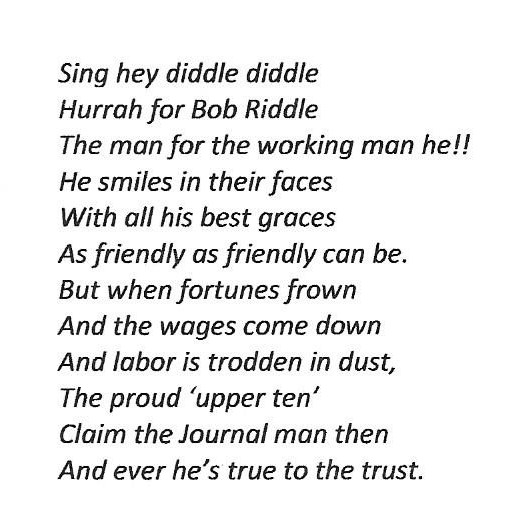
An avid Pittsburgh promoter, Riddle was involved in the effort to extend the Chambersburg Railroad to Pittsburgh. He was also a founder of the Republican Party and was present at the first Republican National Convention in Lafayette Hall in Pittsburgh in 1856. Robert M. Riddle died of inflammatory rheumatism on December 18, 1858, and is buried in Allegheny Cemetery in Pittsburgh.
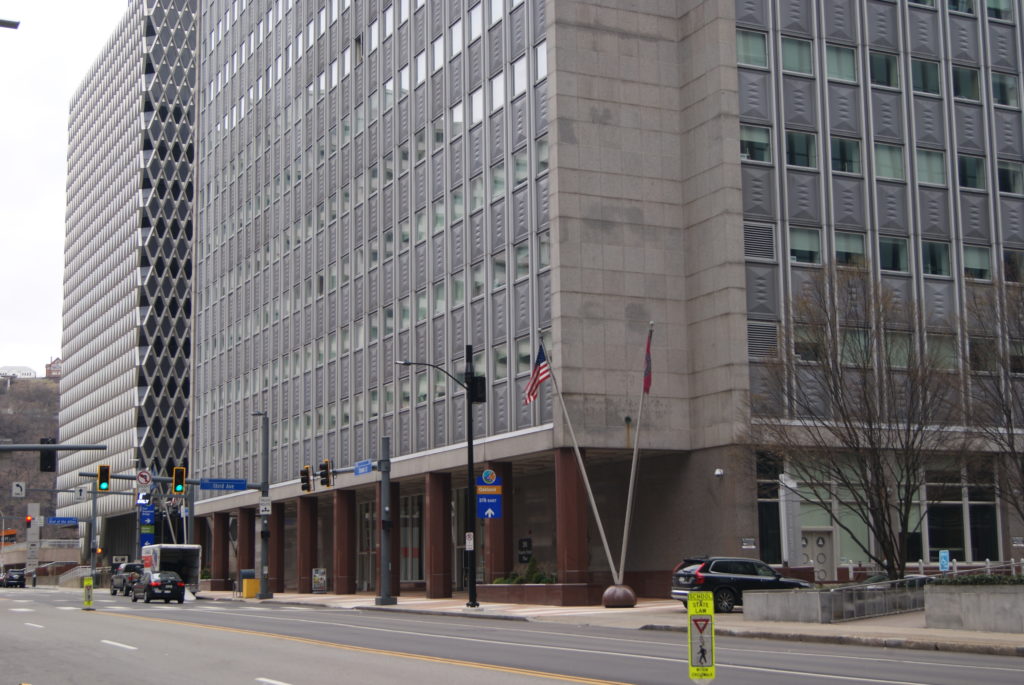
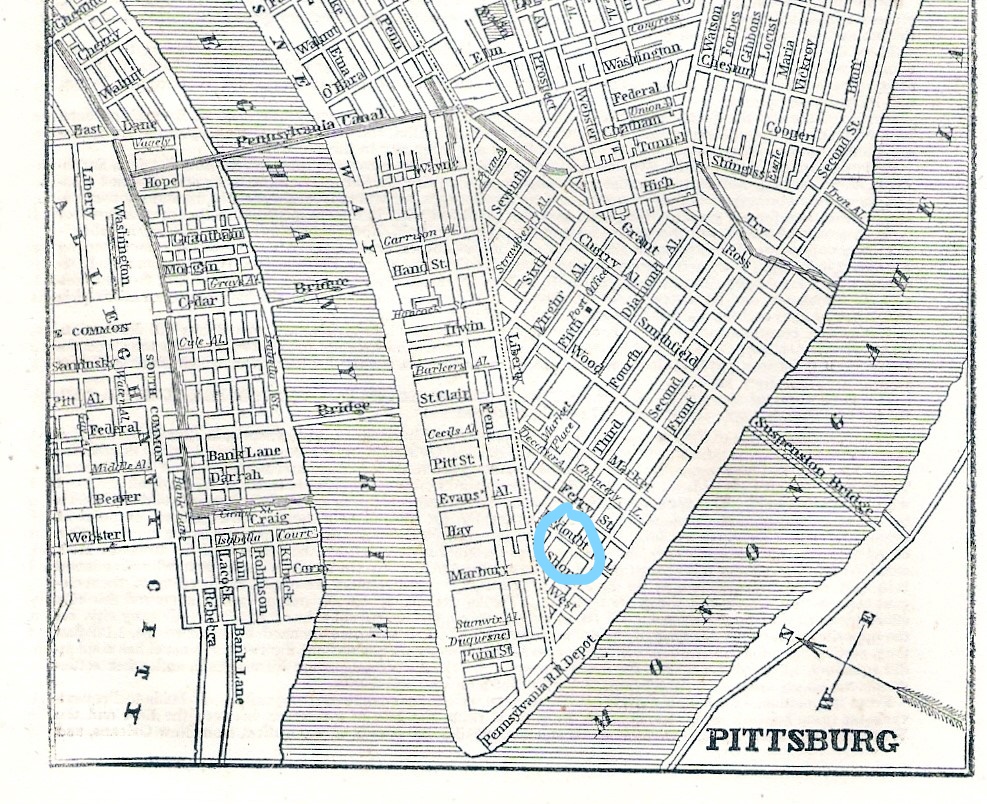
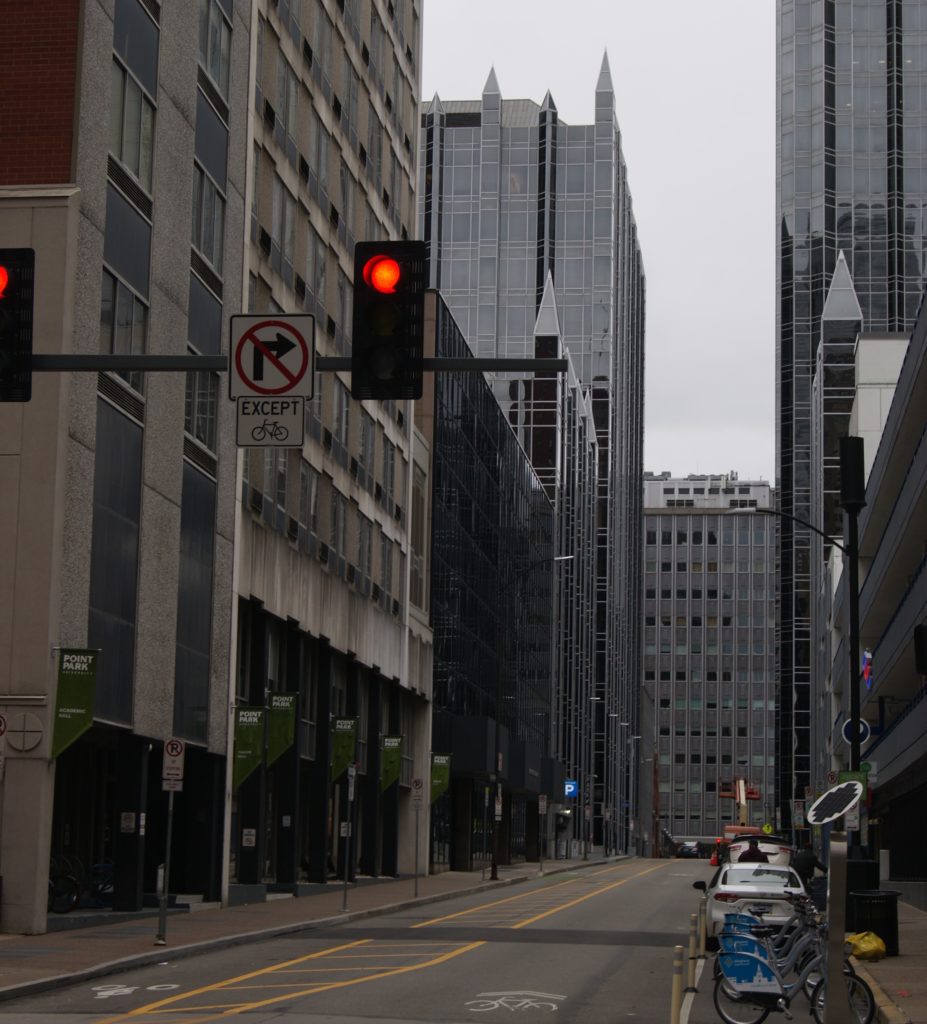
Notes and sources
NOTES:
- Jane Grey Swisshelm was, to my knowledge, the first American woman to start her own newspaper, but she wasn’t the first female newspaper publisher. That honor belongs to Elizabeth Timothy, who assumed the role of publisher of the South Carolina Gazette when her husband, Lewis Timothy, died. She later handed the newspaper over to her son.
- Publication date of Righteous is not yet determined, based on the current virus crisis and the sale of my original publisher to a larger house.
SOURCES:
Hoffert, Sylvia, Jane Grey Swisshelm, An Unconventional Life; University of North Carolina Press, 2004
Swisshelm, Jane Grey, Half A Century; self-published by author, 1880
https://historicpittsburgh.org/islandora/object/pitt%3A00ach3238m/viewer#page/1/mode/2up
https://historicpittsburgh.org/islandora/object/pitt%3A31735064610037/viewer#page/6/mode/2up
https://historicpittsburgh.org/islandora/object/pitt%3A00hc03974m/viewer#page/136/mode/
https://historicpittsburgh.org/islandora/object/pitt%3A00avl7273m/viewer#page/30/mode/2up
https://historicpittsburgh.org/islandora/object/pitt%3A31735056287505/viewer#page/414/mode/2up
